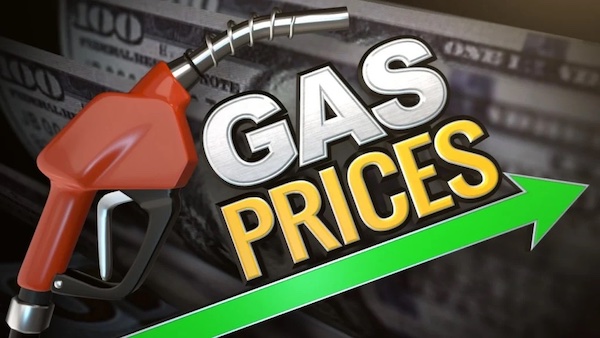A little more than a year ago, the Biden-created gas price increase peaked and caused a wave of inflation the U.S. is still recovering from. Well, it looks like it’s happening again but so far, not as bad. Gas price prices are starting to rise again. According to the AAA national average prices, each gallon in your tank has gone from $3.537 to $3.829 during the past month. An increase of almost thirty cents a gallon, a significant spike for a one-month period.
Under the Trump presidency, the U.S. became energy self-sufficient for the first time in decades. That self-sufficiency kept prices down, but Biden’s policies pushed them up.
Per Fox Business:
The spike in prices follows major supply cuts by the coalition of oil-producing countries led by Russia and Saudi Arabia, known collectively as OPEC+. The group already had in place oil output cuts of about 3.66 million barrels per day when Saudi Arabia announced that it would extend the cuts into September, further constraining supply.
The $3.82 is not as high as the past Biden peak in June 2022, when prices reached $4.62 a gallon. Biden brought the prices down by easing the constraints on production and adding to the oil supply by draining the Strategic Petroleum Reserves (selling some to his friend China); among other things, the price went down significantly. But now it’s starting to rise again=
Harold Hamm, chairman and founder of Continental Resources and author of the book “Game Changer,” said in a Tuesday appearance on “Kudlow” that the federal government needs to “get on with the permitting” and “We need the moratorium taken off of federal lands, we’ve always developed federal lands.”
“What Biden did when he took all the federal lands – that’s 26% of the U.S. landmass – off the table, and about 35% of the productive capacity. So, they did that, and [what] did it do? You’re an economist – it drove inflation straight up, you know it cost more to consumers,” Hamm told host Larry Kudlow. Hamm’s firm pioneered fracking and horizontal drilling, techniques that made the U.S. energy industry more competitive with overseas rivals.
The major reason for the recent price hike is that Russia and Saudi Arabia have cut production, lowering worldwide supply. If Biden hadn’t diminished America’s influence in the worldwide marketplace by cutting back the U.S. production, the Saudi/Russian cutbacks wouldn’t happen or would be a moot point.
All increases haven’t yet hit the marketplace. Per the Wall Street Journal:
Benchmark crude prices are up 21% over the past six weeks, driving up the cost of American workers’ commutes, freight haulers’ trips to and from warehouses, and the production of everything from plastics and fertilizers to clothing.
The gains threaten to prop up inflation, just as easing price pressures had investors betting that the Federal Reserve would soon wrap up its campaign of interest-rate increases. Though the central bank’s preferred inflation metric excludes volatile food and energy costs, many warn that rising oil prices will indirectly pull up costs in every corner of the economy.
“You’re paying for it at the grocery store, with the cost of building materials, household goods,” said Mike Kucharski, vice president of JKC Trucking, a 200-truck operation based in Illinois. “Everybody can feel the high costs.”
Folks, fasten your seat belts. It’s going to be a bumpy flight, thanks to Bidenomics.
p






